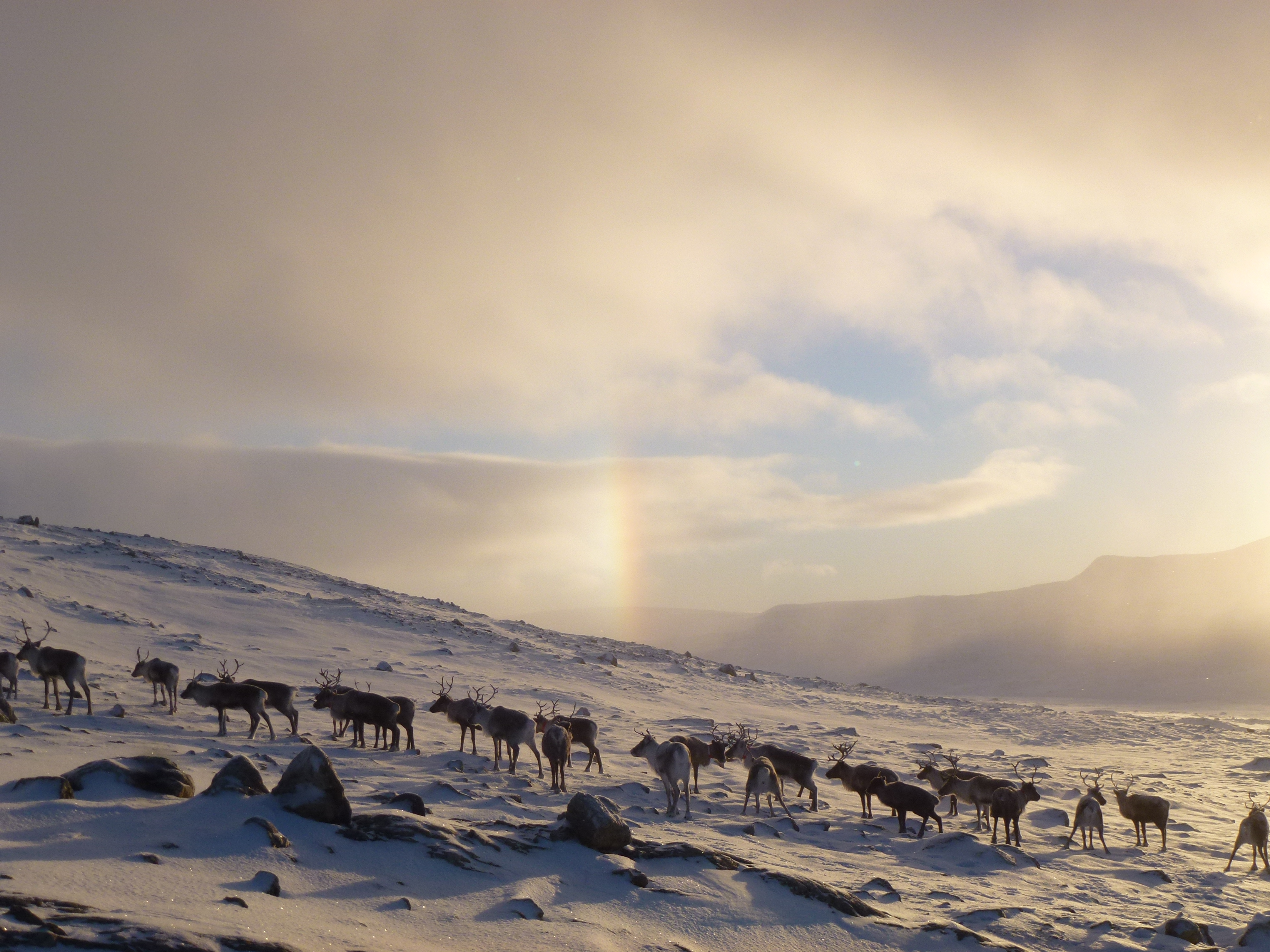
Just before the busiest day of the year for Santa's reindeer, it's been revealed their Swedish cousins are being hard hit by climate change.
In research to be featured at next February's IMAS-sponsored Species on the Move conference in Hobart, a Swedish researcher has found that warming high latitude temperature changes are causing an expansion of disease-carrying ticks among Arctic reindeer.
Photo Anna-Marja Kaddik, Swedish Sami Organisation
Assoc Prof Ann Albihn, from Sweden's National Veterinary Institute and the Swedish University of Agricultural Sciences, said climate change is proceeding fastest at high latitudes and coinciding with this has been a recent northern expansion of ticks.
She said ticks (Ixodes ricinus) bring a risk of introducing new diseases to animals and humans.
"Researchers have already documented infections in reindeer from mosquito-borne West Nile fever in Iowa, USA, and tick-borne babesiosis in Scotland, diseases not yet seen in the north.
"If such new infectious diseases are introduced to reindeer by insect populations extending their northern range this may be detrimental for the reindeer herding in Scandinavia and Russia, and also cause a risk for zoonotic diseases transmitted between animals and humans."
European roe-deer (Capreolus capreolus), a species known to be of importance for the development of dense populations of ticks from more southern locations, have also expanded northwards, with rodents also relevant as a disease carrier.
Assoc Prof Albihn said reindeer (Rangifer tarandus) are adapted to cold environments and specific feed sources, and are therefore sensitive to environmental change.
She said a new five-year international Arctic study begins next year to consider several aspects of climate change and the spread of infectious diseases to humans and animals.
Delegates to the Species on the Move conference, from February 9 to 12, will hear from specialists researching impacts on marine and terrestrial species, and birds and their adaptation strategies in the face of changing climate. The conference is being coordinated by Dr Gretta Pecl the Institute for Marine and Antarctic Studies, Hobart and Dr Stephen Williams, from James Cook University.
More information: http://www.speciesonthemove.com/